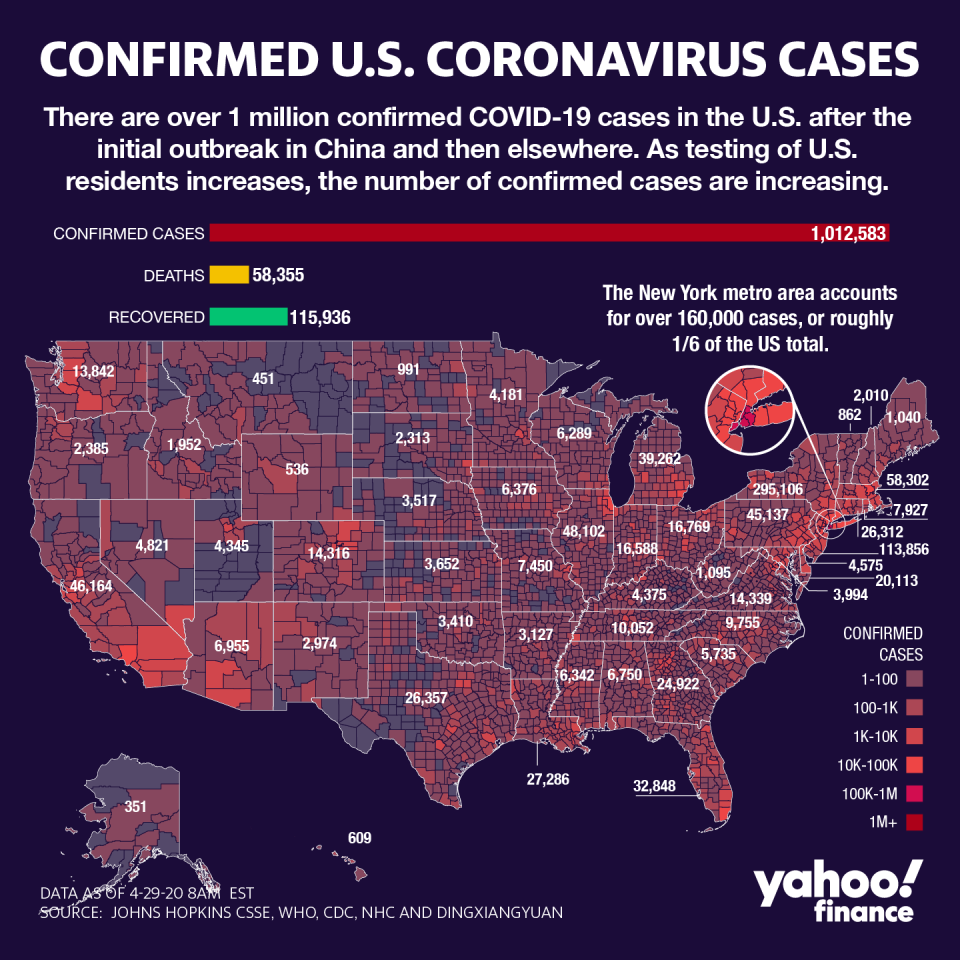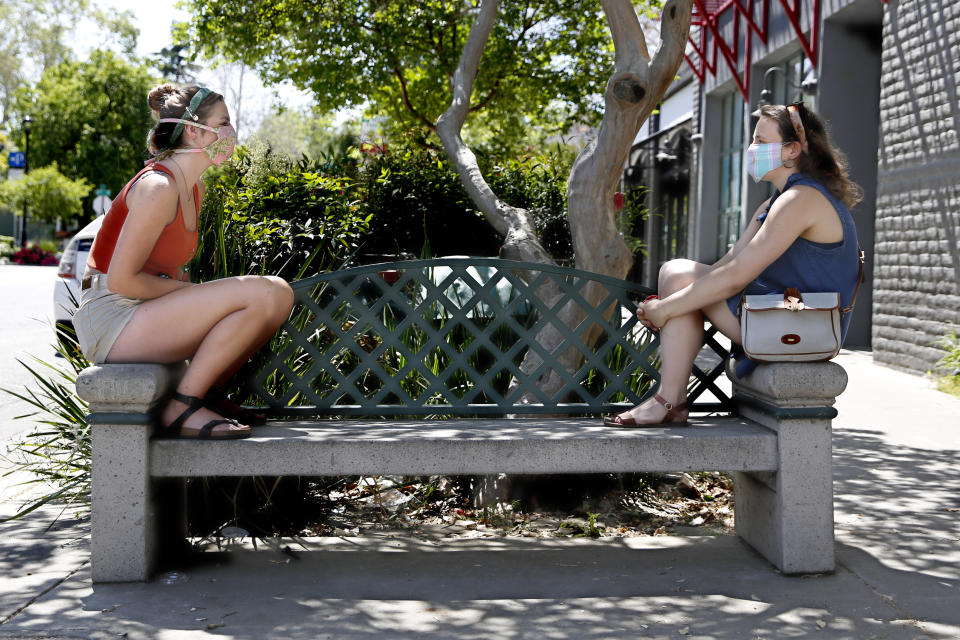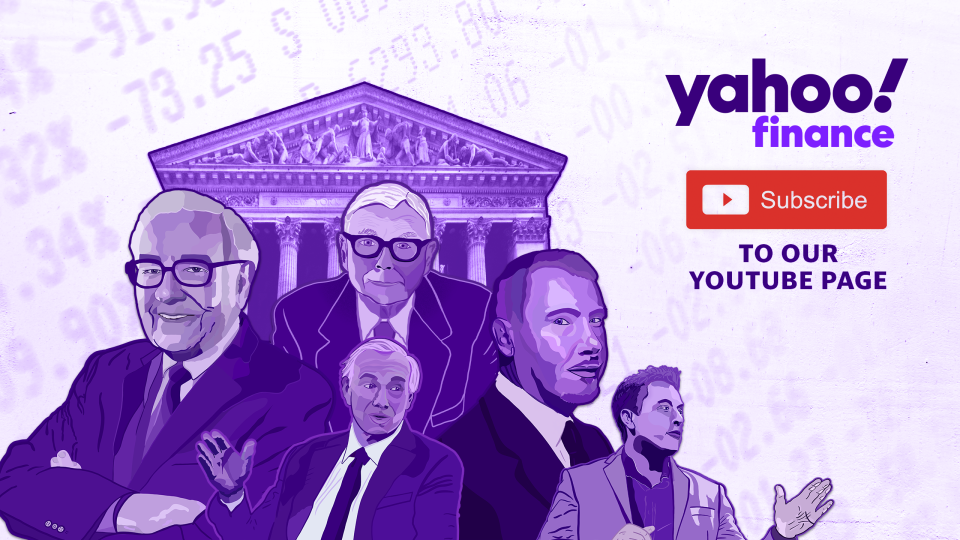Health officials propose paying Americans $50 a day to self-isolate
Although parts of the U.S. have begun reopening their economies amid the coronavirus pandemic, public health officials are still calling on Americans to self-isolate until testing and treatment can get under control.
Sixteen public health officials, including former CMS Administrator Andy Slavitt, former FDA Commissioner Scottt Gottlieb, and former Surgeon General of the U.S. Vivek Murthy, sent a letter to the Senate and House party leaders laying out a series of provisions to be considered in the next coronavirus legislation.
One proposal is to provide income support in the form of $50 a day for those who voluntarily self-isolate. The measure would require an estimated $30 billion in funding over the course of 18 months.

“A key ingredient in maximizing the ability to contain COVID-19 is the ability to offer income support to individuals for whom loss of income during 14 days of voluntary self-isolation represents a prohibitive barrier to being able to self-isolate,” the officials wrote. “We estimate 40% of individuals will need a measure of income support in order to be able to afford to voluntarily self-isolate.”
The letter added that paying these individuals “a stipend of $50 per day (analogous to federal jury duty) will greatly increase the success of containment efforts and the ability to maintain an expanded measure of openness in the economy.”
Other actions proposed in the letter include expanding the contact tracing workforce, utilizing vacant hotels for voluntary self-isolation, and primary care provider referrals.

Safely isolating ‘will help to dramatically reduce spread of infection’
For those who voluntarily self-isolate and are unable to do so in their homes, the health officials propose offering vacant hotels as a self-isolation facility over the course of the next 18 months.
“There is substantial evidence that providing a voluntary option to safely isolate will help to dramatically reduce spread of infection to one’s family and therefore the spread of infection overall,” the letter said. “We believe 14% of infected individuals and exposed contacts will need such an option.”
In New York City, the national epicenter of the coronavirus, some hospitals have been discharging patients to vacant hotels in the city in order to self-isolate and not risk exposure to their families. According to the New York Post, the Hotel Association of New York City is working towards an agreement that would enable coronavirus patients to “convalesce” at many of its nearly 300 hospitals.
The health officials noted that this would both maximize the ability to contain the virus and also provide “much-needed stimulus” to the badly hit hospitality industry. This would cost an estimated $4.5 billion.

Contact tracing
Contact tracing, or monitoring the contacts of infected people, has been suggested as a key way of containing the spread of the virus. In South Korea, a country that’s been lauded for its coronavirus response, officials utilized contact tracing to flatten the curve and limit the amount of people exposed.
“We estimate the necessary contact tracing workforce needs to be expanded by 180,000 until such time as a safe, effective vaccine is on the market,” the letter said. “The workforce estimate assumes a continued but decreasing number of new cases.”
As part of contact tracing, the letter calls for primary care physicians to step up as a referral source for testing and contact tracing. These actions would cost an estimated $12 billion.

‘A significant economic impact’
The total cost of the provisions in the letter is estimated to be $46.5 billion. The health officials propose that the funding come through block grants to states and territories twice a year and be based on projected case counts, testing abilities, and other data tools.
Any unspent money would go into the Treasury once a vaccine is available and the virus is fully contained.
“We believe the direct impact of this investment, along with an adequate testing and containment infrastructure that links in health care providers and businesses, will have a significant economic impact, allowing Americans to get back to work safely and quickly, create employment, stabilize our healthcare system, and stimulate the hospitality sector,” the letter stated.
Adriana is a reporter and editor for Yahoo Finance. Follow her on Twitter @adrianambells.
READ MORE:
Coronavirus response: 'Someone has to pay' for the rising U.S. health care costs
Over 9 million Americans lost health insurance amid coronavirus pandemic, analysis finds
Coronavirus: Health care workers face stress that's 'in many ways equal' to combat
Read the latest financial and business news from Yahoo Finance
Follow Yahoo Finance on Twitter, Facebook, Instagram, Flipboard, SmartNews, LinkedIn, YouTube, and reddit.

